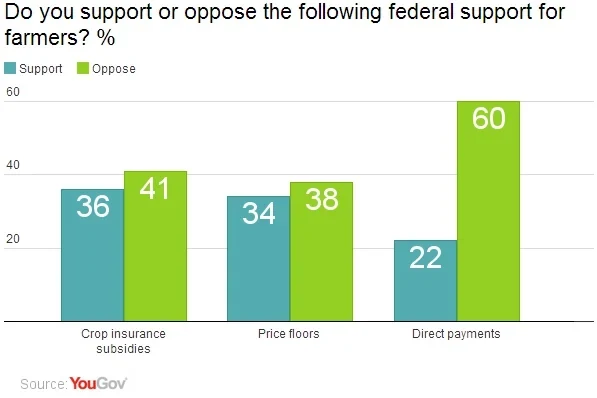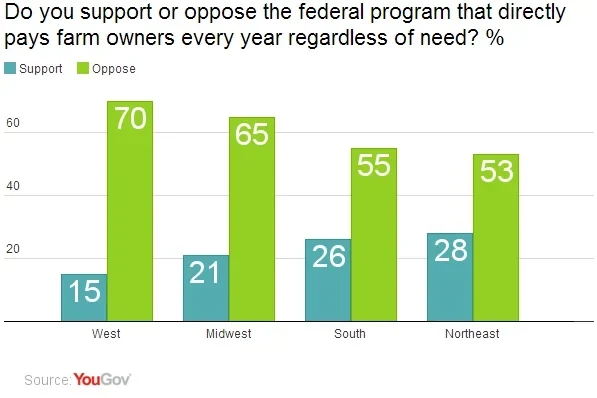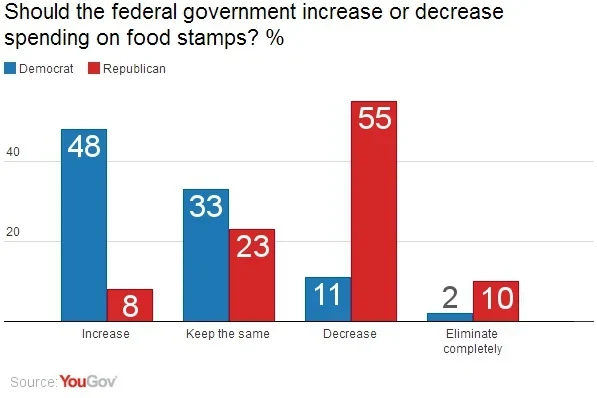Most Americans oppose the direct payment subsidies for farmers, while Democrats overwhelmingly disagree with cuts to food stamps
After two years of the bitter wrangling Congress appears to be on the verge of passing a Farm Bill that could significantly change how the federal government subsidises agriculture. One of the most significant changes in the bill is an end to the direct payment system, which saw many farmers receive money each year from the government regardless of what they grew, or if they grew anything at all. Food stamps will also be cut by around $8 billion per year, as the federal government eliminates the so-called 'energy loophole' which made it far easier for some states to get their residents onto foodstamps if they also received any home energy assistance. After being passed with votes from both Republicans and Democrats in the House of Representatives on January 29th, the bill is now heading to the Senate where it is expected to pass.
The latest research from YouGov shows that most Americans (60%) oppose direct payments to farmers regardless of need or market conditions, while only 22% support the program. People are more divided on the other two main pillars of agricultural aid, but opposition to crop insurance subsidies is marginally higher (41%) than support (36%). 38% of Americans oppose government dictated price floors for agricultural goods, such as those enjoyed by dairy farmers, while 34% support the price floors.

Despite the importance of agriculture to Western and Midwestern economies, opposition to the direct payments program is actually higher there than in other regions. 70% of people in the West, and 65% of people in the Midwest oppose direct payments. The densely populated, heavily urban Northeast is actually the most supportive (28%) and least opposed (53%) to the direct payments program, though even here most people still object to the system.

Food Stamps
Even though the Farm Bill is ostensibly designed to aid farmers, the food stamps program is actually the single most expensive part of the bill. Throughout negotiations over the thorniest issue was potential cuts to food stamps, with Democrats opposing to any cuts to the program and Republicans wanting significant cuts to the program as well as new, tougher limits on who would be eligible for food stamps.
Democrats in Congress have signed on to a compromise to cut $8 billion from food stamps, but it seems that many Democratic voters disagree. Only 13% of Democrats support decreasing or eliminating the program, while nearly half (48%) actually want to increase the amount of money the federal government spends on food stamps. Most Republicans (55%) support cutting the food stamp budget, while 10% want to eliminate the entire program.

Overall, 28% of Americans want to see the food stamp budget increased, the same exact percentage as those who want to see it decreased. 33% want to see food stamp funding kept the same.
Full poll results can be found here.
Image: Getty








